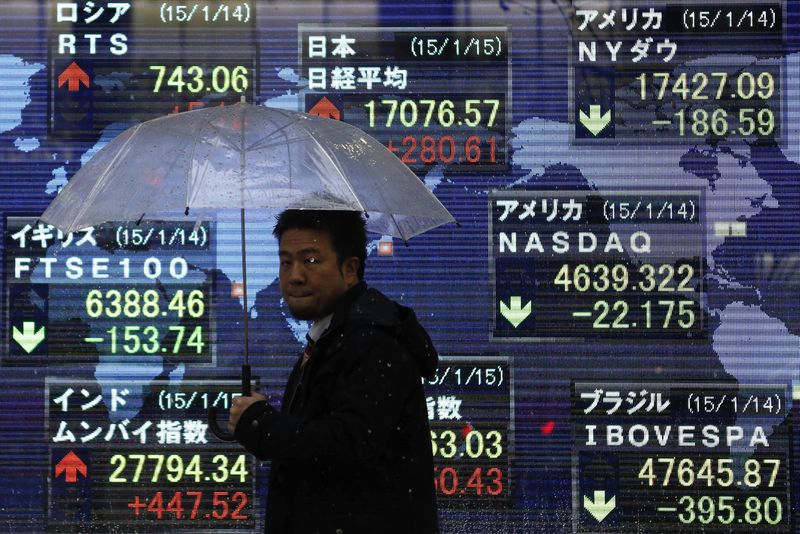By Gina Lee
Investing.com – Asia Pacific stocks were mostly down on Friday morning, with concerns about the spread of COVID-19's Delta strain and the possibility of earlier-than-expected central bank asset tapering continuing to dim the economic outlook.
Japan’s Nikkei 225 was down 0.80% by 9:49 PM ET (1:49 AM GMT) and South Korea’s KOSPI fell 0.93%.
In Australia, the ASX 200 edged up 0.14%.
Hong Kong’s Hang Seng Index slid 1.30%, with China's National People’s Congress Standing Committee expected to approve an anti-sanction law for the city later in the day.
China’s Shanghai Composite fell 1% while the Shenzhen Component was up 0.23%. The People’s Bank of China (PBOC) released its latest one-year loan prime rate (LPR), which remained unchanged at 3.85%, and the five-year LPR, at 4.65%, earlier in the day.
PBOC and the China Banking and Insurance Regulatory Commission also released a joint statement on Thursday urging China Evergrande Group (HK:3333) to resolve its debt problems.
Chinese stocks listed in the U.S. continued their fall, with Tencent Holdings (OTC:TCEHY) Ltd. (HK:0700) and Alibaba Group Holding Ltd. (HK:9988) shares tumbling more than 6%, as Chinese authorities continue to tighten private industry regulations.
Investors also continue to monitor the U.S. Federal Reserve’s next steps towards asset tapering and interest rate hikes, with the minutes from the latest Fed meeting hinting that the former could start as soon as 2021. More clues are expected to be given at the Fed’s Jackson Hole symposium, due to take place from Aug. 26. to 28.
Meanwhile, the global spread of COVID-19's Delta strain shows no sign of slowing down, with U.S. hospitals recording the highest death rates since February 2021.
“The Delta variant of COVID-19 is significantly more serious than anyone is really even pricing into the market,” Kramer Capital Research chief investment officer Hilary Kramer told Bloomberg.
“We know that tapering is coming. We know that the market is getting tired,” she added.
The combination of COVID-19 concerns and Fed concerns put global shares on track for one of the worst weeks in 2021 to date. Investors are also monitoring options expirations later in the day that could fuel volatility.
